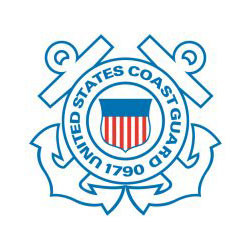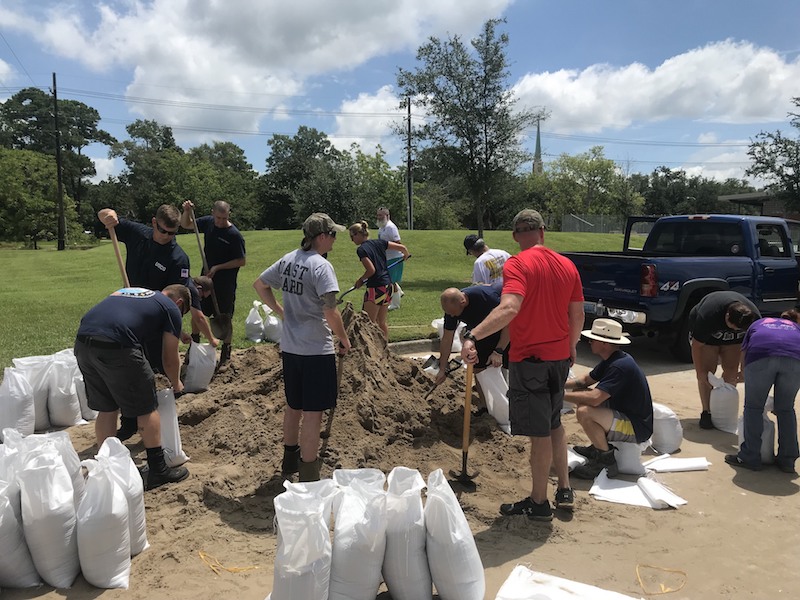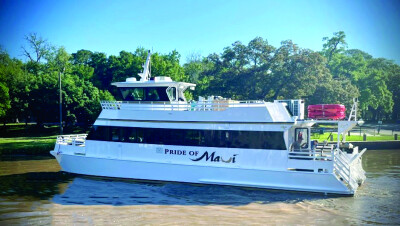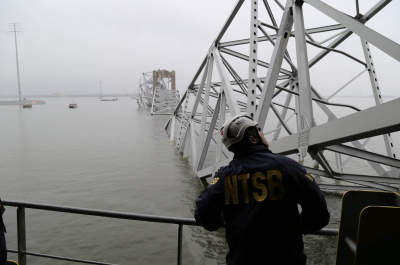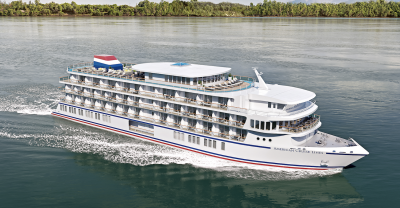The Coast Guard continues to monitor port conditions and strategically pre-stage response teams along the Gulf Coast region as Tropical Storm Barry continued to move inland Friday.
Personnel in the Eighth Coast Guard District are pre-staging assets in safe and nearby locations to prepare to respond after Barry makes landfall.
Coast Guard aircraft are pre-staged at Coast Guard Air Station Houston, Coast Guard Air Station New Orleans, and Coast Guard Aviation Training Center Mobile in preparation for post-storm overflight support.
Three Shallow Water Response teams have deployed and pre-staged in Covington, La., and another three teams have deployed and pre-staged in Shreveport, La.
Mobile Response Kit from Gulf Strike Team and crews from Coast Guard Station New Orleans have pre-staged in Slidell, La. Additional crews from Tactical Law Enforcement Team South and Marine Safety and Security Team Kings Bay are on standby in Mobile, Ala.
A Coast Guard Family Support Team has been established in Slidell to facilitate lodging and needs of evacuated dependents.
Hurricanes and tropical storms can be deadly and the Coast Guard’s ability to conduct rescues can be diminished or non-existent at the height of the storm. Be prepared, stay informed, and heed storm warnings.
Port conditions change based on weather forecasts, and current port conditions can be viewed on the following Coast Guard homeport webpages:
- New Orleans Captain of the Port Zone: https://homeport.uscg.mil/my-homeport/safety-Notifications/MSIB?cotpid=39
- Mobile Captain of the Port Zone: https://homeport.uscg.mil/my-homeport/safety-Notifications/MSIB?cotpid=37
- Houma Captain of the Port Zone: https://homeport.uscg.mil/my-homeport/safety-Notifications/MSIB?cotpid=38
- Port Arthur and Lake Charles Captain of the Port Zone: https://homeport.uscg.mil/my-homeport/safety-Notifications/MSIB?cotpid=41
- Houston-Galveston Captain of the Port Zone: https://homeport.uscg.mil/my-homeport/safety-Notifications/MSIB?cotpid=28
- Lower Mississippi River Captain of the Port Zone: https://homeport.uscg.mil/my-homeport/safety-Notifications/MSIB?cotpid=34
The Coast Guard is reminding the public of these important safety messages:
- Stay off the water. Hurricanes and tropical storms can be deadly and our ability to conduct rescues can be diminished or non-existent at the height of a storm. Be prepared, stay informed and heed storm warnings.
- Be prepared. Owners of large boats are urged to move their vessels to inland marinas where they will be less vulnerable to breaking free of their moorings or to sustaining damage. Mooring lines should be doubled in case of high winds. Boats that can be trailered should be pulled from the water and stored in a place that is not prone to flooding. Those who are leaving their boats in the water are reminded to remove EPIRBs and to secure life rings, life jackets, and small boats. These items, if not properly secured, can break free and require valuable search and rescue resources to be diverted to ensure people are not in distress.
- Stay informed. The public should monitor the progress and strength of the storm through local television, radio, and the Internet. Boaters can monitor its progress on VHF radio channel 16. Information can also be obtained on small craft advisories and warnings on VHF radio channel 16.
For updates on port statuses, follow the Coast Guard Heartland Twitter account at @USCGHeartland.

